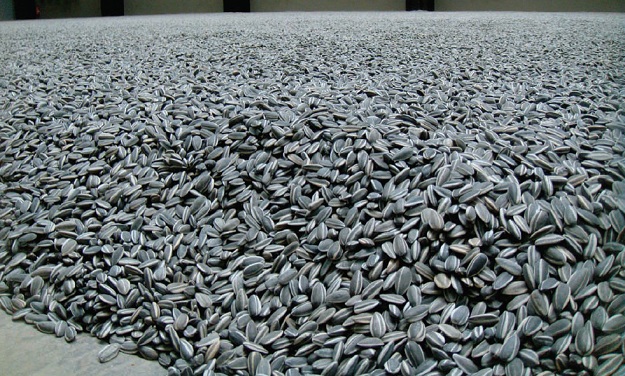Ai Weiwei is one of China’s best-known contemporary artists. His work includes everything from architectural designs of buildings in New York and London through to modern art installations and traditional Chinese drawings

© Marie Aschehoug-Clauteaux Creative Commons BY-ND 2.0
Beijing-born artist Ai Weiwei, 56, is best known for his architectural designs and contemporary art installations, but he has also produced fine art, photography and even recorded a heavy-metal single in 2013. He describes himself as “an artist and a social activist”.
The son of poet Ai Qing, Weiwei spent part of his childhood in a labour camp in Heilongjiang, going on to study animation at the Beijing Film Academy. Along with other up-and-coming Chinese artists, Weiwei formed avant-garde group ‘Stars’, which saw a series of joint exhibitions in China and Hong Kong. In 1981, he moved to the USA, studying at Parsons School of Design and the Art Students League of New York, making a living by drawing street portraits and doing odd jobs. In 1993 he returned to China, as his father was in ill health.
Weiwei’s work has been exhibited all over the world. An installation at the Tate Modern in London in 2010, Sunflower Seeds, consisted of 100 million porcelain ‘seeds’ hand painted in the town of Jingdezhen by 1,600 artisans. His architectural designs include the Beijing National Stadium, for which he was the artist consultant for design, and the creation of 2012’s temporary Serpentine Gallery Pavilion in London in a joint project with Herzog and de Meuron. One of his more controversial works was a photograph of himself naked holding a model of a horse. The title of the piece, Grass Mud Horse Covering the Middle, has a double meaning in Chinese – it could also be interpreted as an insult to the Communist Party Central Committee. In 2011 Weiwei was detained by police at Beijing Capital International Airport for 81 days, when he was attempting to board a flight to Hong Kong. He was accused of ‘economic crimes’ related to taxes on his studio. Weiwei denies the charges. He was released on bail, but he is still prohibited from leaving the country and has had to surrender his passport.
He is married to artist Lu Qing and currently resides in Beijing.
Global: How do you feel about the media attention you’ve received over the past few years? How has it affected your art?
Ai Weiwei: I’ve worked closely with the media for years and I appreciate the attention. I see it as a sign that modern society and journalism are not dominated solely by political or economic interests, but have room for independent and varied views. It shows that we are living in a different time from the past. Thanks to challenges that the internet poses to traditional media, user-generated content has become a reality and is widely accessible to the public. As artists, it is important to be aware and make use of ourselves as media to provide content and information for public discussion. This is an unprecedented opportunity for direct, concise and lively conversations with the world, which has always been the goal of the artist. It is a sign of the information age and is only possible today.
What do you think the most important function of art is? Is it important to you that you have a lasting effect on your audience?
The most important function of art is to provide a unique and private expression that is independent from reality, yet running parallel to it. The language that art creates is evidence of the collective struggle to understand our existence.
Where do you envision your career as an artist going in the future?
As an artist, I think I only exist with the people who can see or hear me. Wherever that is will be where I go in the future.
What themes have influenced your recent work?
I am most influenced by the idea that artists can be truly independent, and likewise for any individual, when they are given free flow of information, the independent choice to exercise judgement, the means to express themselves in different forms and the possibility to communicate freely with their audience. It is an amazing time for artists, because there are endless opportunities to encourage individuals to take initiatives and action and to associate ideas freely with thoughts.
What changes do you hope to see happen in China in your lifetime?
I hope to see China becoming a normal society, meaning it recognises the function of society, as well as the rights and happiness of individuals. It should abandon the thinking that a society’s and a nation’s function can only be maintained by exploiting personal rights. To become a normal society, freedom of speech, an independent judicial system and social justice need to be restored. The state needs to exist as a legitimate power, elected by its citizens rather than secured by arms, jails and censorship. The people’s minds cannot be blocked from information and expression and their voices cannot be silenced.
Interview by Jade Scard





